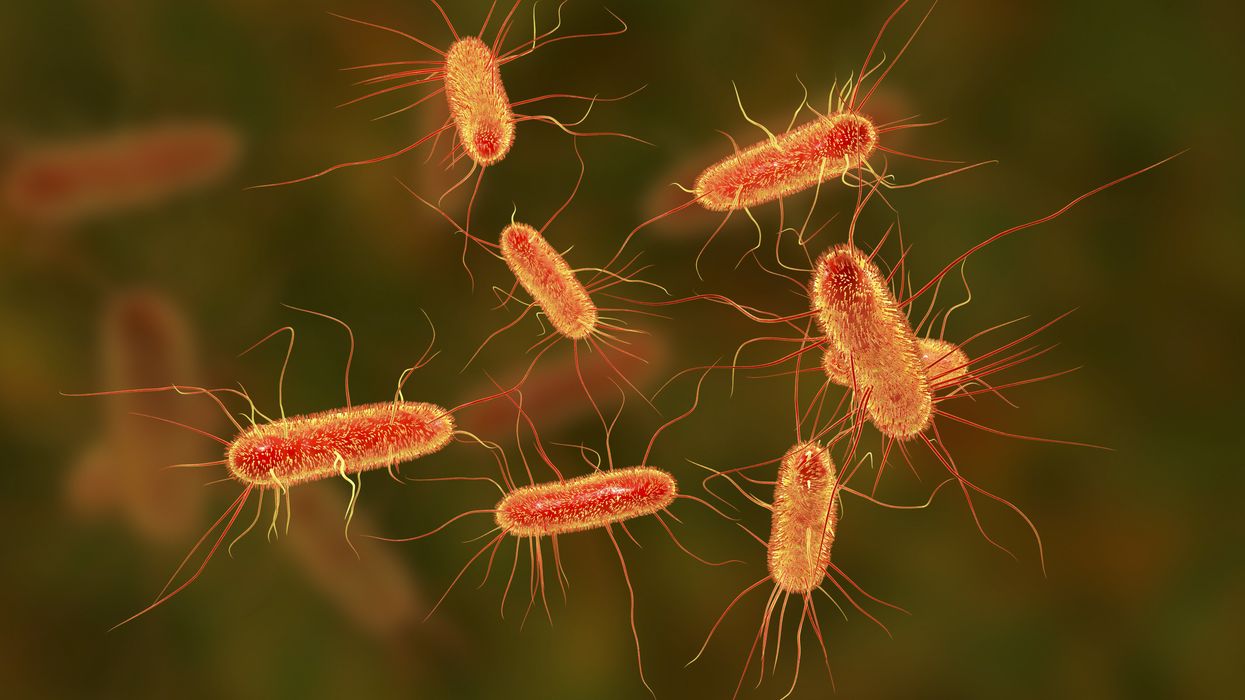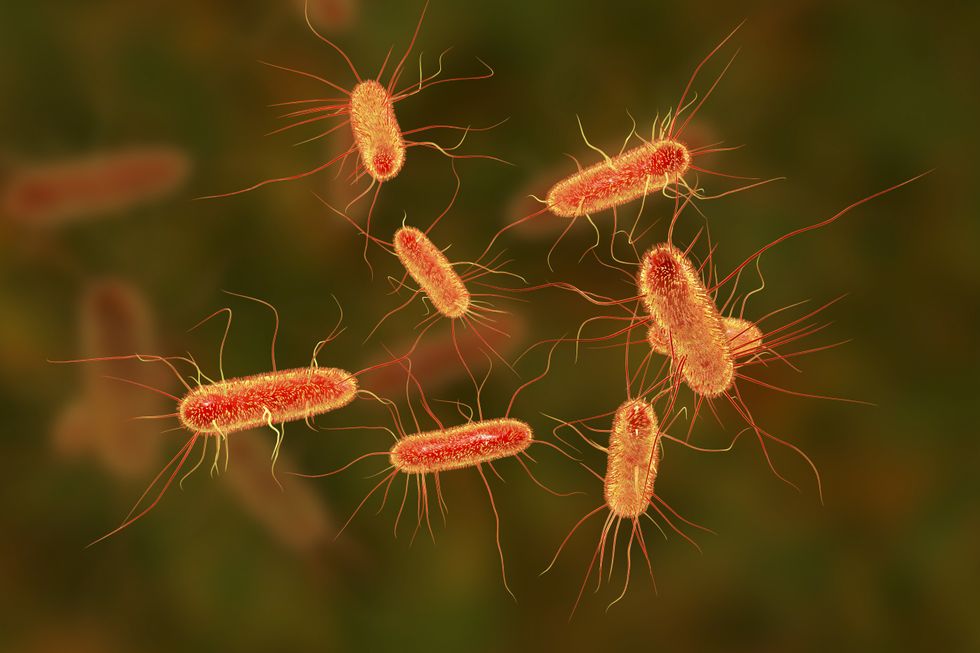Scientists make groundbreaking finding on cause of bowel cancer after surge in diagnoses

E.coli bacteria is thought to be behind bowel cancer cases
|GETTY
Bowel cancer remains the fourth most common cancer in the UK, claiming around 16,800 lives annually
Don't Miss
Most Read
Scientists have discovered that specific strains of E.coli bacteria could be behind rising cancer rates in industrialised nations like the UK, with new research suggesting potential vaccine treatments to reduce the risk.
Two particular strains of the common bacteria, which produce a DNA-damaging chemical called colibactin, have been linked to increased cases of bowel, bladder and prostate cancers.
The groundbreaking study, published in Lancet Microbe, reveals these harmful strains are more prevalent in developed countries with higher cancer rates.
Researchers believe targeting these specific E.coli variants could offer significant public health benefits, potentially reducing both cancer risks and the need for antibiotics to treat infections.
The findings come as bowel cancer remains the fourth most common cancer in the UK, claiming around 16,800 lives annually.
E.coli bacteria typically live harmlessly in human and animal intestines, but certain strains can cause serious illness.
 E.coli bacteria is thought to be behind bowel cancer cases | GETTY
E.coli bacteria is thought to be behind bowel cancer cases | GETTYRecent figures show 38,757 E.coli cases were reported in England between 2022 and 2023.
The bacteria is known for causing food poisoning, urinary tract infections, pneumonia and sepsis.
Earlier this year, a severe outbreak of shiga toxin-producing E.coli (STEC) resulted in multiple hospitalisations and one death in the UK.
The outbreak was traced to lettuce used in ready-to-eat sandwiches.
While some strains cause acute illness through food poisoning, the newly identified cancer-linked variants operate differently, primarily causing bloodstream and urinary tract infections.
The two cancer-linked E.coli strains are particularly common in industrialised nations like the UK, where cancer rates are also higher.
These strains produce colibactin, a chemical that can damage DNA and has been specifically linked to bowel cancer.
Bowel cancer cases have increased dramatically, with a 52 per cent surge among 25-49 year-olds over the past three decades.
Prostate cancer diagnoses have also risen in the UK since the early 1990s, with more than 55,000 cases diagnosed annually across all age groups.
Bladder cancer, though less common, affects about 10,000 people each year in the UK.
The research suggests a concerning correlation between these cancer rates and the prevalence of colibactin-producing E.coli strains in industrialised nations.
The research team used genomic surveillance to track different E.coli strains across multiple countries, including the UK, Norway, Pakistan and Bangladesh.
Their analysis revealed the cancer-linked strains were significantly rarer in countries like Bangladesh and Pakistan, which also report lower rates of bowel, bladder and prostate cancers.
Professor Jukka Corander, from the Wellcome Sanger Institute, said: "We have been using large-scale genomics to track E.coli strains across multiple countries for the last five years, using data that goes back to the early 2000s."
Dr Tommi Maklin, of the University of Helsinki, emphasised the importance of global data: "Having access to global genomic data on which strains are found in an area can uncover new trends and possibilities, such as strains in industrialised countries potentially being linked to the risk of certain cancers."
Researchers believe these findings could lead to new targeted treatments against cancer-linked E.coli strains.
Professor Corander expressed hope for eradicating colibactin-producing strains: "Vaccines or other interventions that target these E.coli strains could offer huge public health benefits, such as reducing the burden of infections and lessening the need for antibiotics."
Dr Trevor Lawley from the Wellcome Sanger Institute suggested therapeutic probiotics as a potential solution: "In the future, it could be possible to develop therapeutic probiotics that help to displace unwanted bacterial strains, such as the ones that release colibactin."
He added: "Understanding more about the interactions between E.coli and cancer risk highlights the impact our microbiome has on our health and is a crucial avenue to explore."
The research comes as scientists are also exploring using salmonella to fight bowel cancer.










